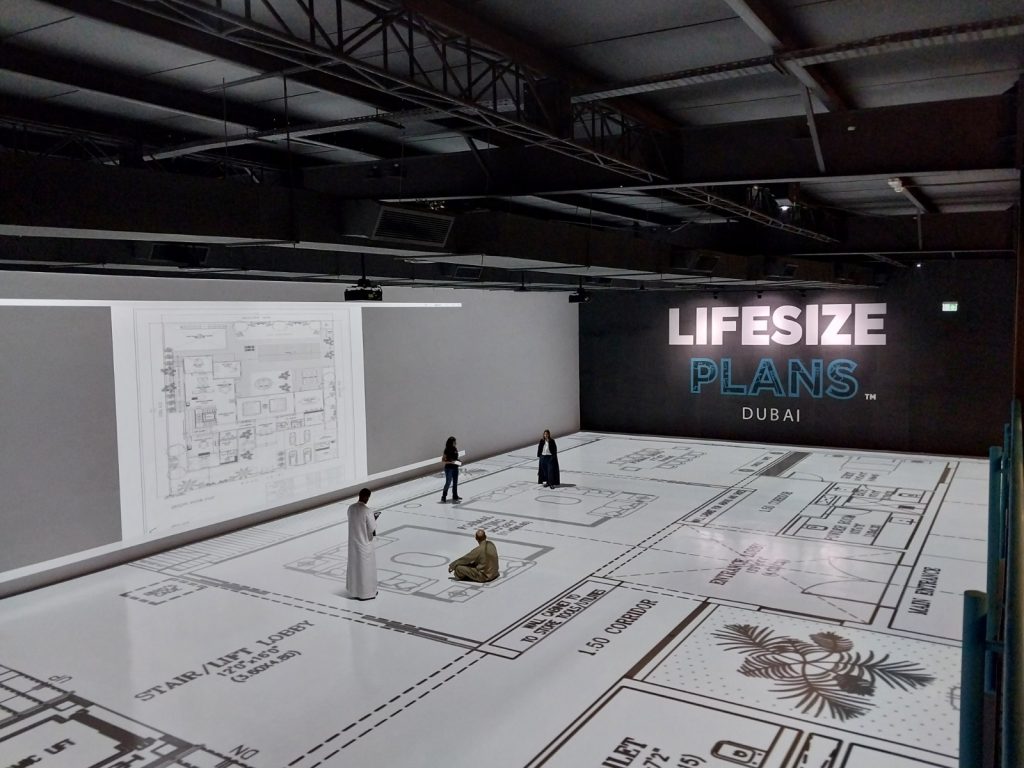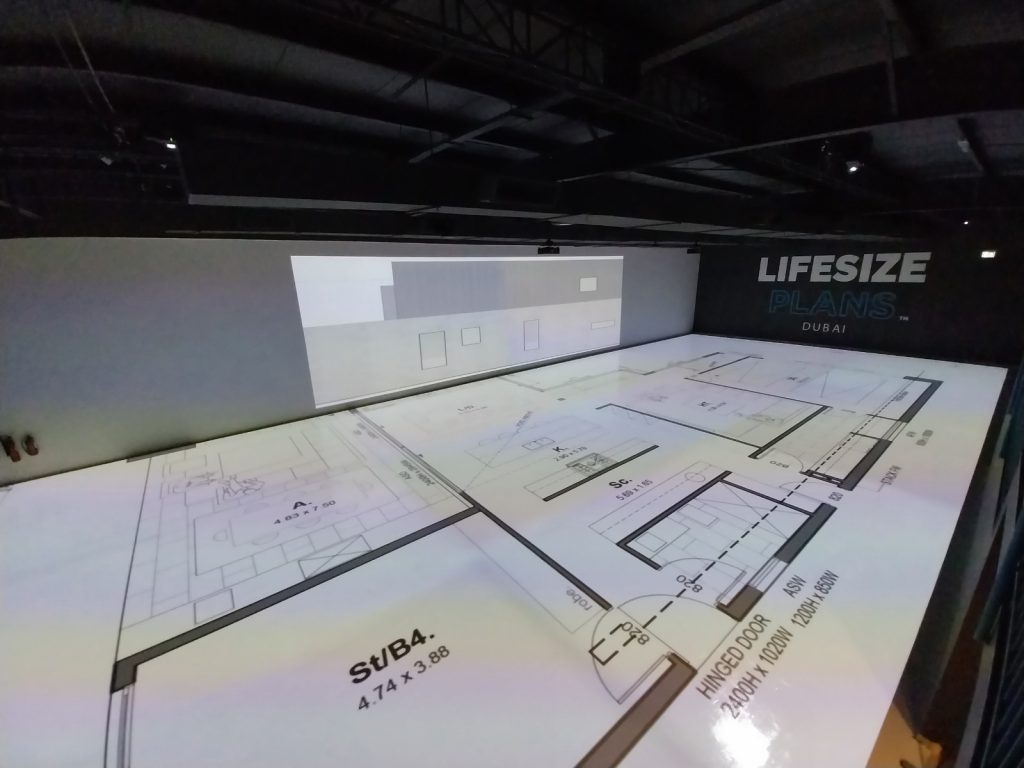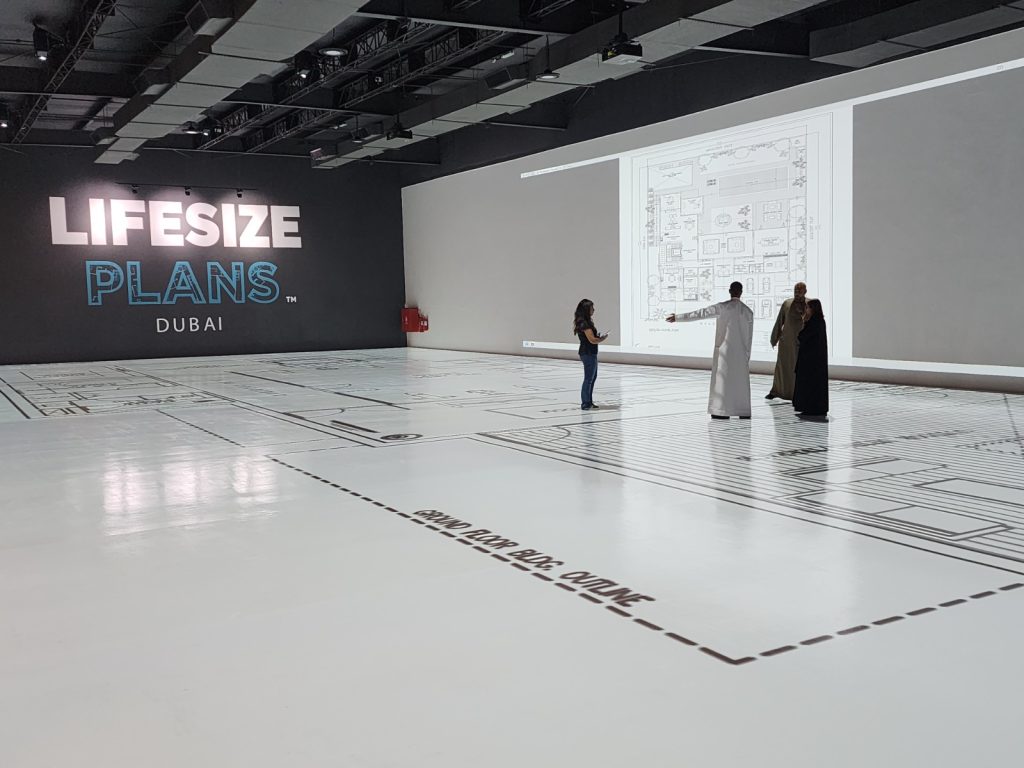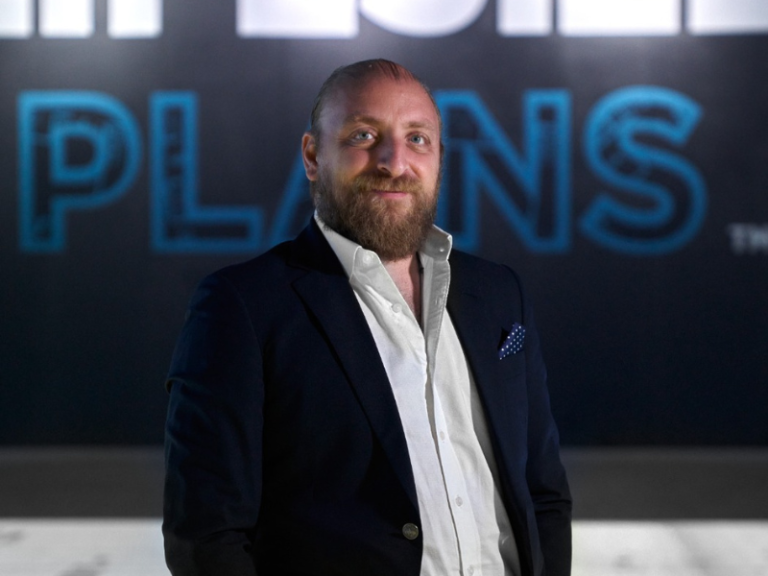Georges Calas, CEO of Lifesize Plans Dubai, highlights enabling sustainable construction with pre-construction technology in the UAE
1. Tell us about yourself and Lifesize Plans Dubai.
I am Georges Calas, CEO of Lifesize Plans Dubai. Bringing over 20 years of experience in finance and banking, I also played a key role in establishing Lifesize Plans’ Middle East franchise in September 2023. I am also a part of a start-up’s management team.
Headquartered in Australia, Lifesize Plans Dubai offers a unique service of enlarging building floorplans and projecting them onto the floor at a 1:1 scale for residential, commercial and industrial properties using integrated projection technology that allows for seamless real-life walkthroughs. This helps clients visualize their future property by getting a proper look and feel of the space, making it a cost-effective tool for property developers, homeowners, designers, architects, etc. as they can avoid any building variation costs during and after the construction stage. Additionally, Lifesize Plans provides Augmented Reality services for enhanced visualization and an immersive and interactive experience.
2. What is the significance of pre-construction technology in the construction industry?
Pre-construction technology plays a crucial role in the construction industry for several reasons. It optimizes workflows, allows for detailed planning, facilitated decision making, reduced costs, and empowers construction professionals to visualize designs and detect clashes and conflicts early on, preventing costly rework during the construction phase ultimately leading to successful projects.

3. What are the top current trends in the pre-construction sector recently?
- Virtual Design and Construction (VDC): The use of virtual environments for engineering and visualizing construction projects before they’re physically built is on the rise. Technologies like Building Information Modeling (BIM) allow architects, engineers and other stakeholders to create accurate virtual models of structures, reducing rework costs and improving project outcomes. Lifesize Plans Dubai being an example for that.
- Construction Management Software (CMS): CMS tools help manage the fragmented nature of construction projects by centralizing data, blueprints, and documents. With a 127% growth in Google searches for “construction management software” over the last decade, it’s clear that CMS is becoming essential for efficient project management.
- Multi-stakeholder Collaboration: Pre-construction planning now emphasizes collaboration among various parties involved in a project. Improved communication and coordination result in informed decision-making and streamlined processes.
- Augmented Reality (AR) and Drones: AR enhances visualization during pre-construction phases, allowing stakeholders to overlay digital information onto physical spaces while drones provide accurate site surveys, progress tracking and safety inspections.
- Carbon Tracking and Sustainability: The industry is increasingly conscious of environmental impact. Integrating carbon tracking into pre-construction processes helps reduce a project’s carbon footprint.
- Democratization of Construction Technology: Education and training are making construction technology accessible to a wider audience, ensuring that more professionals can leverage tools like BIM, AI, and automation.
4. How does pre-construction technology play a role in promoting sustainability within the construction industry?
Pre-construction technology plays a key role in promoting sustainability as it empowers the construction industry and its stakeholders to make informed and timely decisions, reduce waste and unnecessary costs, enhance energy efficiency and create buildings that align with sustainability goals. As the industry continues to evolve, integrating pre-construction technology will be essential for a more sustainable industry.
5. What specific challenges does the UAE face in terms of sustainable construction, and how does Lifesize Plans address these challenges?
Sustainable construction has become a key trend in the UAE, driven by the nation’s commitment to eco-friendly architecture and sustainability goals. The challenges faced by the UAE and how Lifesize Plans contributes to addressing them:
- Environmental Awareness and Legislation: The UAE aims to achieve net-zero emissions by 2050, but this requires significant changes in construction practices and increased environmental awareness. Lifesize Plans promotes sustainable construction by allowing developers, builders, and designers to visualize projects in real life 1:1 scale and make informed decisions aligned with green building standards and environmental regulations.
- Resource Efficiency and Waste Reduction: Some of the common issues are the buildup of construction waste and inefficient resource utilization. Lifesize Plans helps minimize waste by enabling accurate planning before construction begins. Clients can walk through plans, reducing the need for costly variations and delays.
- Energy Efficiency and Building Performance: Another challenge is achieving energy-efficient buildings which is crucial for sustainability. Lifesize Plans tackles this by allowing designers to experience their projects in real size, ensuring that energy-efficient features are well-integrated and optimized before construction starts.
- Stakeholder Collaboration and Decision-Making: Effective collaboration among stakeholders is essential for sustainable outcomes. Lifesize Plans provides a collaborative and interactive space where business owners, designers, and clients can make live changes to floor plans, fostering better decision-making and reduced costly variations.
- Educational Advancement: Educating future professionals about sustainable construction practices is essential. Lifesize Plans serves as an educational hub, facilitating learning and mentorship for students studying building, design, or construction.
Lifesize Plans addresses UAE’s sustainable construction challenges by offering innovative technology that allows visualizing projects at 1:1 scale, promotes collaboration and ensures efficient, eco-friendly outcomes, contributing to a more sustainable future for the UAE.

6. What role does innovation play in advancing sustainability goals within Lifesize Plans Dubai’s operations?
Innovation is the heartbeat of progress and within the operations of Lifesize Plans Dubai, it plays a pivotal role in advancing sustainability goals. Here’s how innovation drives positive change:
- Innovative Tools for Smart Design and Visualization: Lifesize Plans leverages cutting-edge technology and tools including AR and VR, enabling stakeholders, architects, builders, and clients to experience architectural plans in immersive ways and visualize sustainable features (eg: solar panels, green roofs, or efficient HVAC systems) before construction begins. Leading to better decision-making, reduced errors and ensures that sustainability elements are seamlessly integrated.
- Data-Driven Decision-Making: Lifesize Plans utilizes data analysis throughout the project lifecycle. From energy consumption patterns to material usage, they use big data and machine learning algorithms. By identifying trends and patterns, this allows for optimized resource allocation, minimized waste, and enhanced energy efficiency. Data-driven insights empower sustainable choices and decision making.
- Collaborative Platforms: Whether it’s architects, engineers or contractors, Lifesize Plans provides an innovative collaborative platform for them to interact and contribute in real time. Seamless communication fosters creativity and a shared understanding of sustainability goals among stakeholders. It’s a collective effort toward a sustainable future.
- Innovation in Materials: From recycled concrete to biodegradable insulation, Lifesize Plans stays abreast of sustainable materials by exploring new materials. Incorporating eco-friendly materials reduces construction projects’ environmental footprint. These choices align with global sustainability targets.
- Innovative Reuse for Circular Economy Practices: Lifesize Plans promotes the circular economy by considering the entire lifecycle of materials. They explore ways to reuse, recycle, and repurpose building components. Circular practices minimize waste, conserve resources, and contribute to a more sustainable construction industry.
- Innovative Systems and Energy-Efficient Technologies: Lifesize Plans integrates smart technologies like energy-efficient lighting, automated shading, and intelligent HVAC systems. These innovations reduce energy consumption, enhance occupant comfort, and align with sustainability objectives.
- Education and Awareness: Lifesize Plans invests in training programs for employees and partners, to educate about sustainable practices, certifications, and industry trends. A well-informed workforce drives sustainable decisions at every stage of a project.
7. Looking ahead, what do you see as the future trends and opportunities with pre-construction technology in the UAE?
- Sustainable construction practices and eco-friendly materials are gaining momentum and with UAE committed to reducing carbon emissions, this drives increased integration of pre-construction technology.
- Prefabrication and modular construction rise in popularity, reducing waste, speed in construction, enhancing quality through off-site assembly.
- Digital Twins and Building Information Modeling (BIM) are transforming project planning and management. Real-time monitoring, predictive analytics, and virtual simulations enhance decision-making.
- Robotics and automation are reshaping construction sites. Drones, autonomous vehicles, and robotic arms improve efficiency, safety, and accuracy.
- Energy-efficient technologies remain a priority. Smart lighting, HVAC systems and renewable energy integration are key.
- Real time collaborative platforms and communication tools will continue to enhance communication among stakeholders.
- Blockchain technology and supply chain management will ensure transparency, traceability, and security in supply chains.
- Skill development and training remain essential for adopting new technologies seamlessly.





